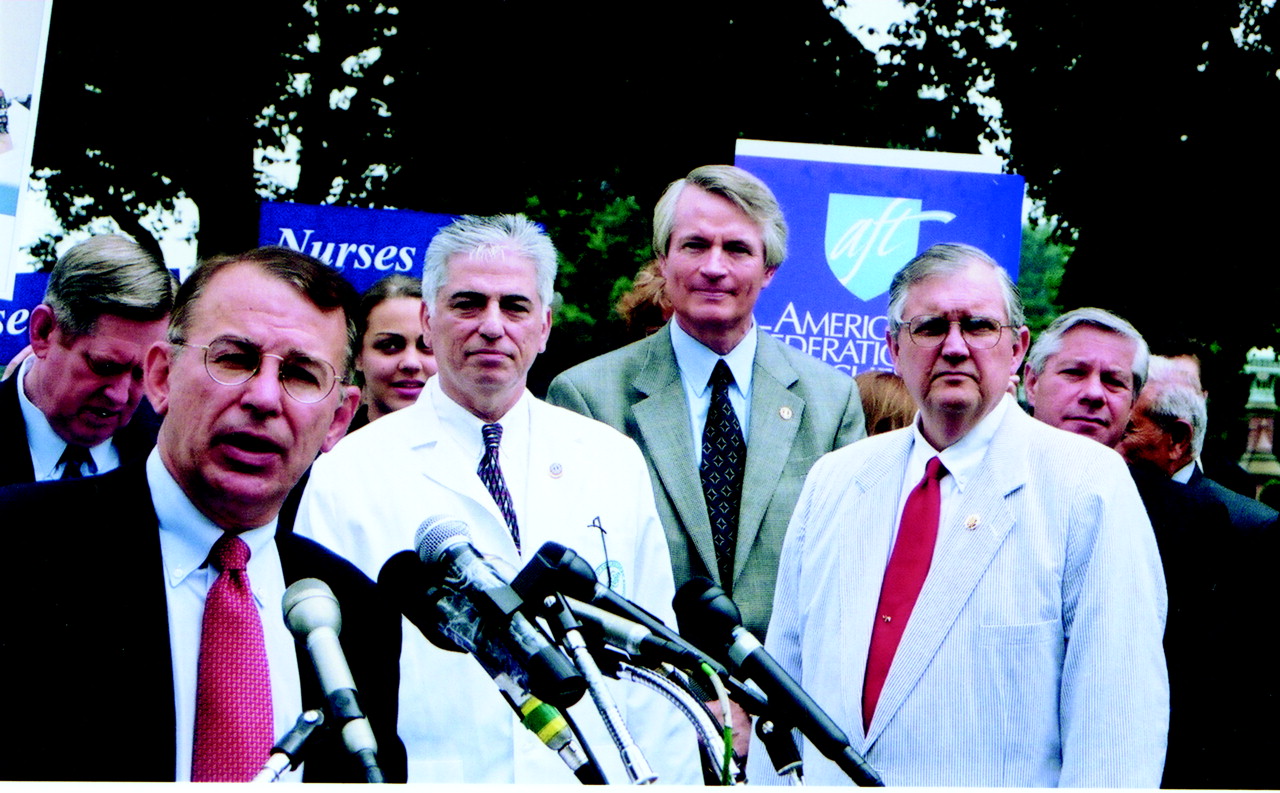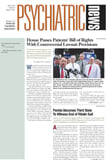When the House and Senate meet in conference committee next month to reconcile their respective versions of a patients’ bill of rights, the most contentious issue will be the different lawsuit provisions.
Sens. Edward Kennedy (D-Mass.) and John Edwards (D-N.C.), cosponsors of the bill that the Senate passed in June (S 1052), have denounced the amended language in the House bill (HR 2563) that passed by a narrow margin earlier this month.
Although both bills provide similar new rights to health care coverage, a key difference is how violation of these rights could be adjudicated in state and federal court.
The House amendment offered by Rep. Charles Norwood (R-Ga.) just days before Congress recessed in early August would create a new federal legal rule for patients to sue their health plans in state courts dictating damage awards, standards of proof, and other terms, according to the legislation.
Kennedy and Edwards complained that the amended House bill limits pain and suffering damages in state and federal court to $1.5 million and punitive damages in state court to $1.5 million. The Senate bill allows patients to sue for unlimited pain and suffering damages and punitive damages of up to $5 million in federal court.
Although both bills require that patients go through an external review board before filing suit, under the House bill patients must meet a higher burden of proof if they lose the appeal.
The Senate bill (see box) creates no new federal rules spelling out the conditions under which patients can sue in state court and defers to state law for any caps on damages.
Cosponsors of HR 2563, Reps. Greg Ganske (R-Iowa), John Dingell (D-Mich.), and Marion Berry (D-Ark.), also criticized the Norwood amendment. They warned that it would preempt stronger state protection laws and make it impossible for patients to win malpractice awards in state courts for personal injury.
Ganske cited an analysis by George Washington University health law professors stating that the amendment meant that state malpractice laws would not apply to any health treatment decisions that are “wanton, negligent, reckless, or willful,” according to the August 3 Congressional Daily Monitor.
Norwood’s congressional allies and other groups that had supported HR 2563 as introduced in the House in July were surprised that he struck a compromise deal with the president.
Norwood explained his sudden shift from advocating for a stronger patients’ bill of rights to agreeing to one with weaker liability measures by saying that he was guided by “political reality,” according to the August 3 Congressional Daily Monitor.
Bush had repeatedly threatened to veto the House bill as introduced, complaining that it would encourage “frivolous lawsuits” and drive up health insurance costs, and could lead employers to drop health care coverage.
When Norwood announced the amendment earlier this month, he said that without Bush’s signature, patients would have no new protections against their insurers, according to the August 3 Congressional Daily Monitor.
Norwood’s compromise culminated a six-year battle to get a patients’ bill of rights enacted into law. Norwood, who is a dentist, championed a comprehensive bill in 1999 that passed the House by a large majority but it was never reconciled with the more restrictive Senate version.
At press time Jay Cutler, J.D., director of APA’s Division of Government Relations, told Psychiatric News that APA was supporting the Senate bill and “looking to the conference committee to come up with the most comprehensive patient-protection bill.”
The text of HR 2563 can be accessed on the Web at http://thomas.loc.gov/ by entering “HR 2563” in the “Bill Number” search box. The text of S 1052 can be accessed at the same site by entering “S 1052” in the “Bill Number” search box. ▪
Image (TWOBILLSL) is missing or otherwise invalid.

